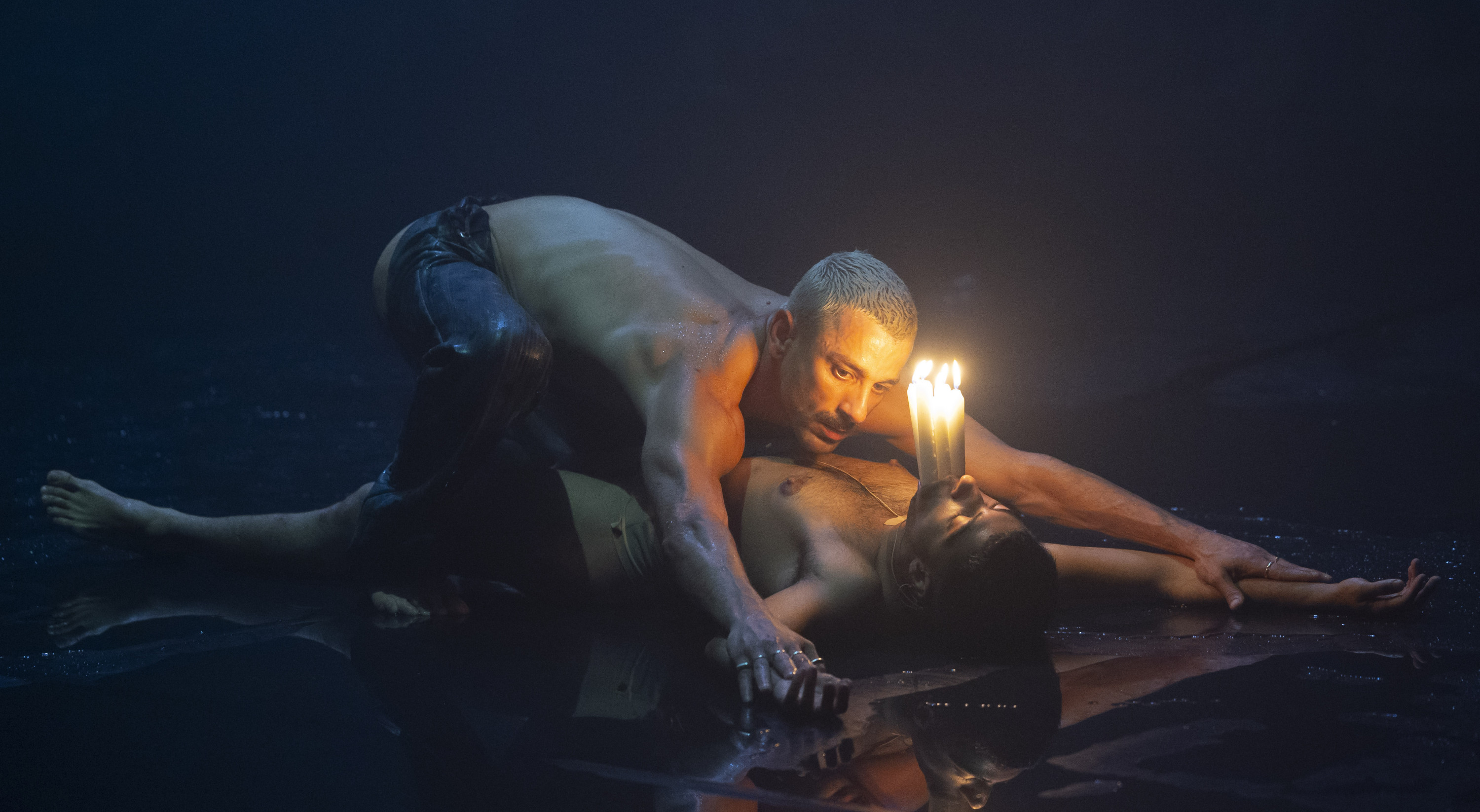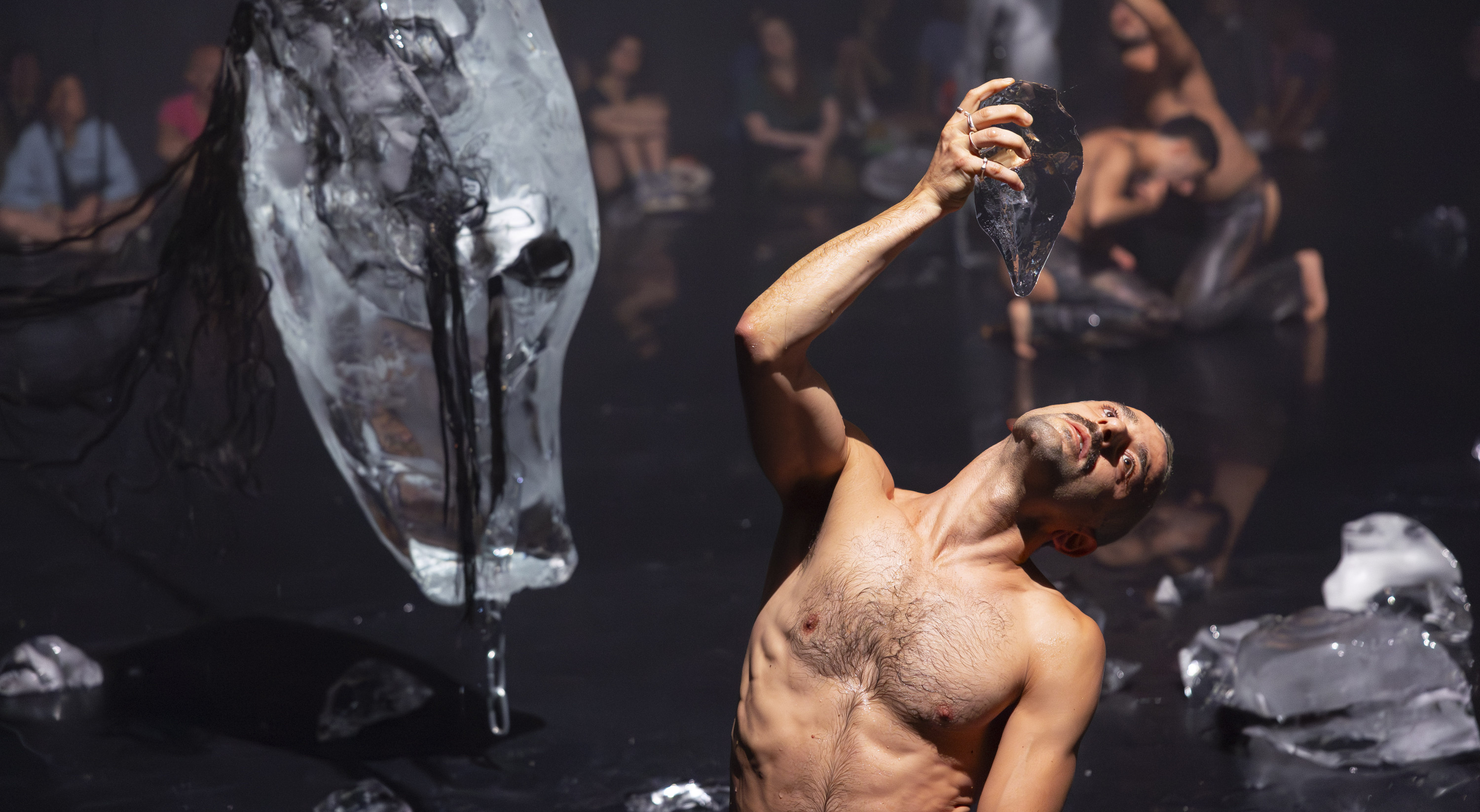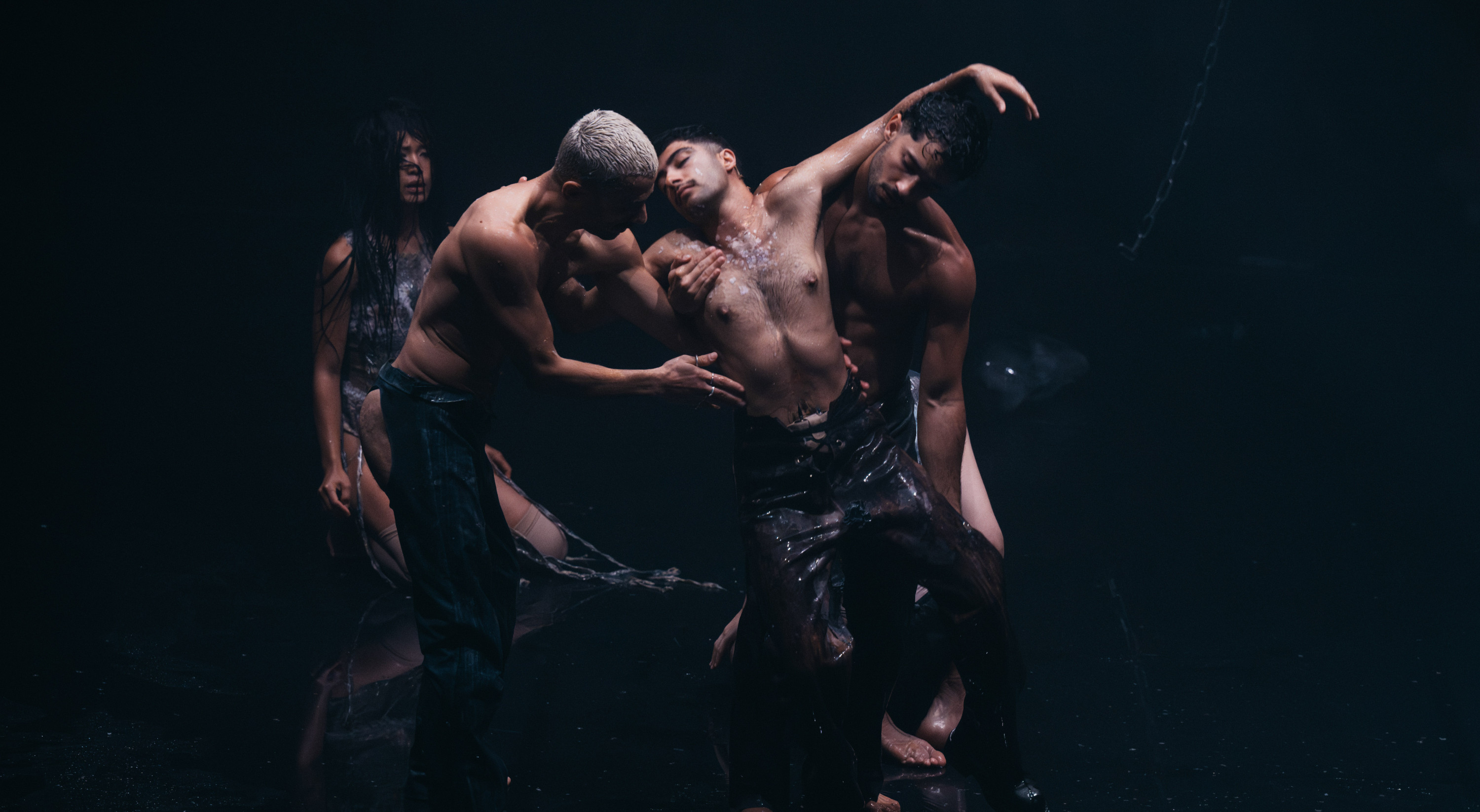Sorour Darabi, DEEPDAWN
One Thousand and One Nights
octoberoct 16 – 19
Wednesday october 16
19h
Thursday october 17
19h
Friday october 18
19h
Saturday october 19
20h
Choreography, conception and artistic direction Sorour Darabi. Performers, singer, actors and live musician Aimilios Arapoglou, Li-Yun Hu, Lara Chanel, Felipe Faria, Sorour Darabi, Pablo Altar, Florian Le Prisé, Ange Halliwell. Musical composition Pablo Altar, Florian Le Prisé. Vocal coach Henry Browne. Light design Shaly Lopez. Technical director Jean-Marc Ségalen. Set design Alicia Zaton based on an original idea by Sorour Darabi. Ice sculptures Samuel Girault – Ice and Art. Costumes Anousha Mohtashami. English-Persian copywriter and curator (POETIC SOCIETIES, Crafted Counsel Remote Residency Program) Ava Ansari. Production and tour management Jenny Suarez. Administration management Martin Buisson.
Exclusive production DEEPDAWN – Sorour Darabi
Coproduction Festival Montpellier Danse; CCN Ballet national de Marseille as part of the studio residency – ministry of Culture ; Arsenic – Centre d’art scénique contemporain (Lausanne); La Villette; CND Centre national de la danse; Tanzquartier Wien GmbH; Fonds franco-allemand Transfabrik pour le spectacle vivant; Charleroi danse – Centre chorégraphique de la Fédération Wallonie-Bruxelles; Festival d’Automne à Paris
With the support of the Manutention du Palais de Tokyo; CND Centre national de la danse ; Trauma Bar und Kino (Berlin); Goethe Institute; Tanzhaus Zürich; PACT Zollverein (Essen); KWP Kunstenwerkplaats (Brussels); POETIC SOCIETIES (Detroit); The Saison Foundation (Tokyo)
With the support of ADAMI and SPEDIDAM
Acknowledgements Palmina D’Ascoli, David Lopez, Thomas Gachet
La Villette, the CND Centre national de la danse and the Festival d’Automne à Paris are co-producers of this show and present it as a co-realisation.
Sorour Darabi, the Iranian choreographer, who has been living in France since 2013, unveils his first opera, an ambulatory performance which enables voices marginalized by ancient myths to be heard. It is a piece devised by and for committed bodies.
One Thousand and One Nights revisits the notion of night or night-time through the eyes of Scheherazade. The original work, conceived by a heterosexual cis-gender man, has often been criticized for relegating the character of Scheherazade to the status of a narrative instrument, plunging her body, desires and subjectivity into the shadowy confines of fairy tales. For Sorour Darabi, the night is not just a simple metaphor for inventing tales. Indeed it is a space in which the true essence of Scheherazade can finally flourish as a queer myth, far from the constraints imposed by a cis-heteronormative world. One Thousand and One Nights explores an aesthetic of the transgender voice. For most trans people, hormone treatments induce a transformation of the voice, affecting where the sound is placed in the vocal cords. One Thousand and One Nights brings this fragility to the stage, by viewing the voice as an affective landscape. This an emancipatory opera for the 21st century in which new aesthetics and thoughts are voiced. Only then can we build another, different, relationship with the world, which resonates into the depths of the night.
In the same place


